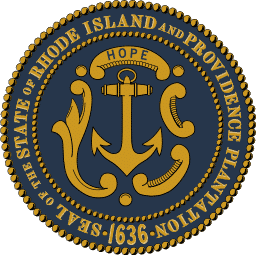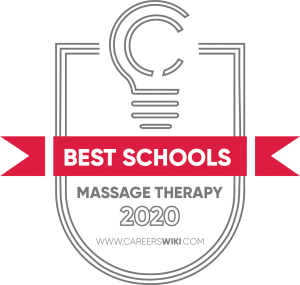…
There are two massage therapy schools in Rhode Island, a private institution and a public college, with campuses in Lincoln and Newport County.
Students may earn occupational certificates, which takes a year or less; or two-year associate degrees. They attend classes, work in labs, and get hands-on clinical experience.
Employment opportunities for massage therapists are rapidly expanding. Salaries and wages for Rhode Island practitioners rank slightly below the national median, but officials anticipate about 50 job openings every year during the 10 years that will end in 2026.
View our best massage therapy schools in other states.

This regulatory agency is a division of the state Department of Health. It adopts rules for the licensure of massage therapists and issues licenses to applicants who qualify. The board also determines minimum criteria for curricula at massage therapy schools, approving educational programs that comply.
The agency establishes standards for professional and ethical conduct. It investigates complaints. Practitioners may be subject to license suspension or revocation. Illegal behavior can result in criminal charges. The board takes legal action against an owner, operator, or manager of an establishment who allows an unlicensed person to perform massages.
The director of the Health Department appoints seven board members, with the approval of the governor. As many as four of the examiners are licensed massage therapists. One member, who cannot have a financial interest in the profession, represents the public.
To become a massage therapist in Rhode Island, it is necessary to either be a high school graduate or earn a general education diploma. By completing college-level science, health, and business classes, a student has a better chance of winning acceptance to a postsecondary school.
The state board approves massage therapy programs that consist of at least 500 clock hours. A curriculum must include 300 hours of MT theory and practice, 100 hours of anatomy and physiology, training in CPR and first aid, and an ethics class. Electives may make up 150 hours of the coursework. Programs vary in the types of massage techniques and other therapies they teach.
After graduating, the next step is to file an application with the board to practice in Rhode Island. The process involves posting an acceptable score on the Massage and Bodywork Licensing Examination, or MBLEx. The Federation of State Massage Therapy Boards (FSMTB) charges an approximately $200 fee to take the test.
Pearson VUE administers the exam throughout the year at its assessment centers, one of which is in Warwick. Rhode Island students also may take the test at a center in Massachusetts or Connecticut. The FSMTB gives results of the exam to the state board.
The board mandates that practitioners renew their licenses every year. They are required to receive six continuing education hours in the form of classes at accredited postsecondary schools, self-study courses, online courses, formal presentations, or conferences. Continuing education is to include ethics instruction.
We selected the schools below based on the programs that they offer, accreditation, student population, graduation rate and reputation.
View our Ranking Methodology to learn more about how we rank schools.

70%
607
This private, for-profit vocational school is in the Lincoln Mall. It provides a Therapeutic Massage and Bodywork Technician certificate program.
There are 720 clock hours and 28 credits. Students attending day classes complete the requirements in about 36 weeks. Those in the evening program study for approximately 51 weeks.
In addition to the state required curriculum, there are classes in Myology and Kinesiology, Clinical Pathology, Swedish Massage Therapy, and Deep Tissue and Neuromuscular Therapy. Students also learn Asian bodywork therapy and sports massage. They administer treatments to clients in simulated spa settings on campus.
19%
14539
This public school, where 100 percent of massage therapy graduates pass the licensing exam, offers two MT programs on its Newport County campus.
Earning a certificate takes 12 months of day classes or 18 months of evening classes. The 655-hour, 34-credit curriculum exceeds state standards. It focuses on ethics, clinical assessment, critical thinking, and entrepreneurship.
The associate in applied science program entails 1,135 clock hours and a clinical internship. Students attend classes in the evenings and on weekends. In addition to the standard MT coursework, there are general education classes such as English Composition, Oral Communication, Algebra, and Psychology.
$18
$37,350
12%
The median income of a Rhode Island practitioner is about $37,350 a year or $18 per hour—below the national average of over $41,400 a year or about $20 per hour.
The top 10 percent in the state earn more than $69,600 or approximately $33.50, not as good as the nationwide median of around $78,300 or $37.60. Pay for the bottom 10 percent is about $22,400 or nearly $11 in Rhode Island, higher than the national average of over $21,300 or around $10.25.
There were 420 massage therapists here in 2016. The number of positions will increase to 470 within 10 years, if the government’s Bureau of Labor Statistics is correct in its prediction. The projected 12 percent job-growth rate is much slower than the 26 percent the BLS expects nationwide.
Sources: U.S. Bureau of Labor Statistics, CareerOneStop

LIMITED TIME DEAL